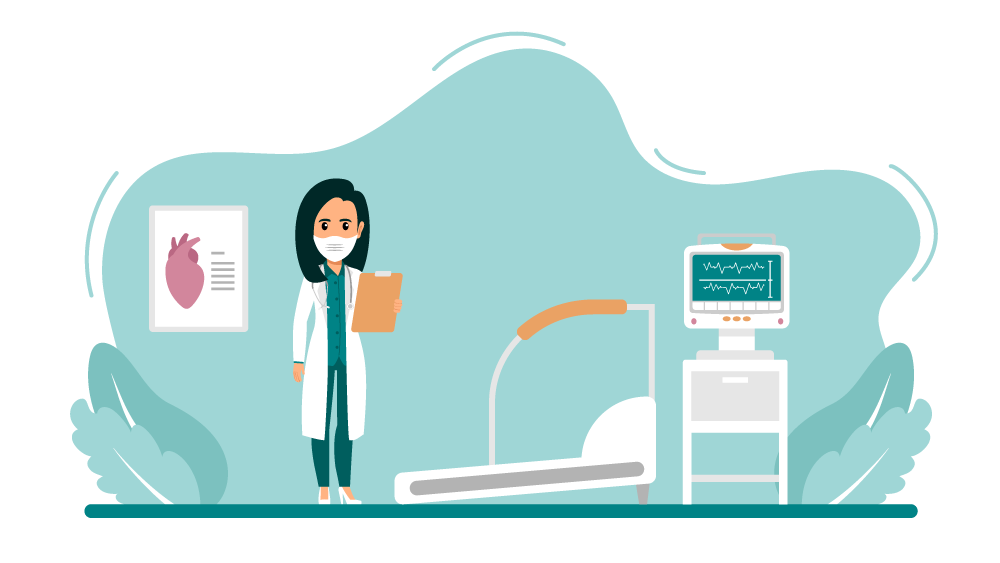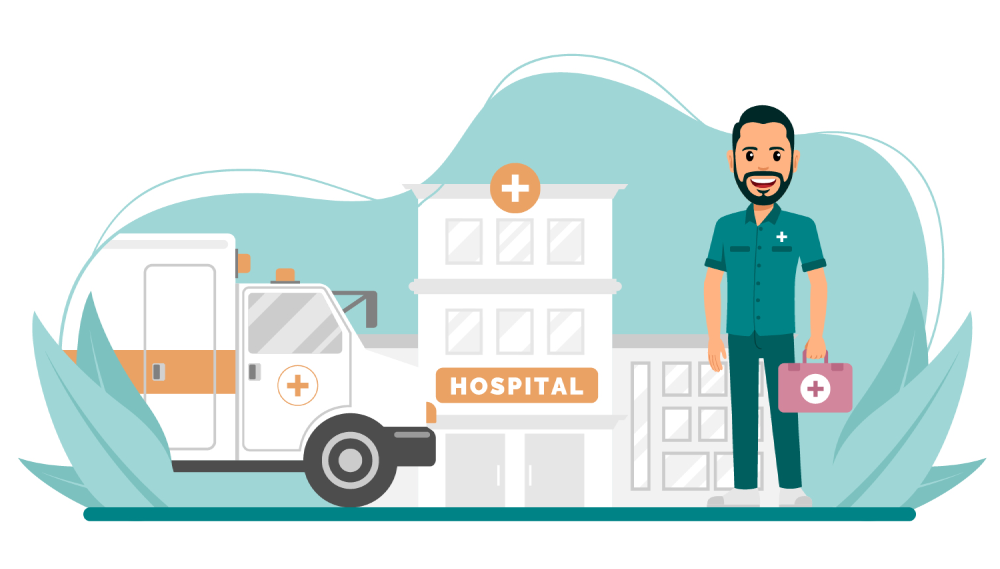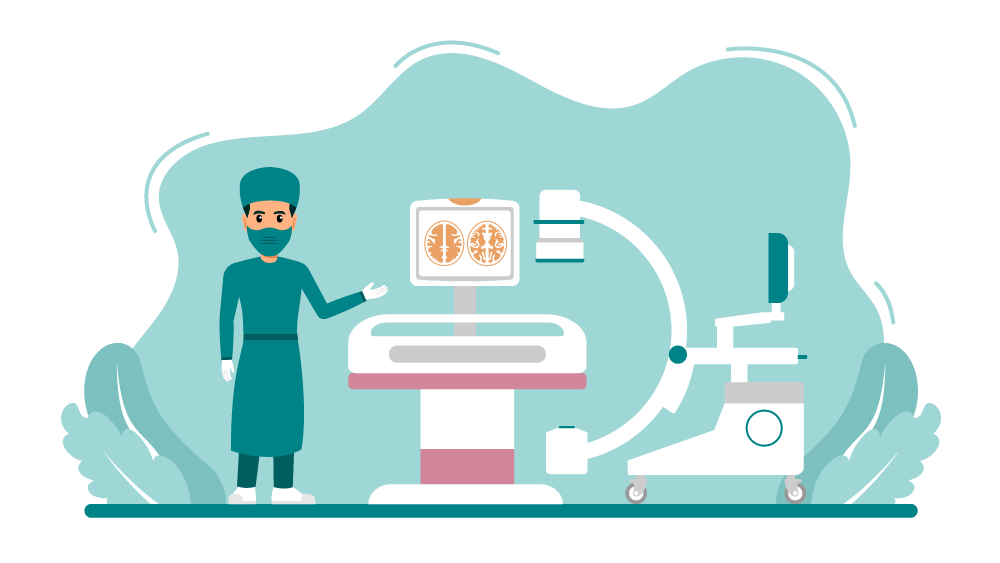A cardiologist is a highly educated and trained physician. As a cardiologist, you will specialize in treading conditions and diseases impacting the cardiovascular system. This may include both the heart and the blood vessels running through the body.
Most think of a cardiologist as a heart doctor. You will work with patients to identify the risk factors for heart disease. Cardiologists often help by diagnosing and treating issues with the cardiovascular system.
If you want to become a cardiologist, you should understand the job duties. Let’s look at what a cardiologist does and the requirements to become one.

Job Duties of a Cardiologist
The job duties of a cardiologist are rather extensive. You will specialize when you become a cardiologist instead of just becoming a primary care provider. As a cardiologist, you will do all of the following:
- Meet with patients to go over their cardiovascular health
- Use diagnostic tools, imaging, and tests to diagnose any issues patients are having
- Create a plan for treating the patient including medications and therapies
- Help educate patients about the condition they are dealing with
- Advise lifestyle changes and dietary changes for better cardiovascular health
- Operate on patients with cardiovascular issues
- Help patients manage their heart health and monitor improvements
- Provide clinical education for medical students
- Keep up with ethical and legal laws and regulations
As a cardiologist, you may have even more specific job duties, if you specialize. You can specialize in echocardiography, electrophysiology, or interventional procedures. All of these specialties may provide more specialized job duties.
Requirements to Become a Cardiologist
There are several educational requirements you will need to meet to become a cardiologist. It will start with finishing high school and scoring high on the SAT or ACT. With a good SAT prep course, you can make sure your score is high enough to get into a top program.
Once you complete high school, you will need to complete the following steps:
Step #1 – Get a Bachelor’s Degree
Getting a bachelor’s degree is just the start of the educational requirements. You will need to get a pre-med degree or a degree in chemistry, engineering, psychology, life sciences, or mathematics.
Step #2 – Pass the Medical College Admission Test (MCAT)
After getting your bachelor’s degree, you will need to pass the MCAT. Scoring very high on this test will ensure you get into a good medical school. Even if you pass, it may be difficult to get into medical school without a high score.
Many students choose an MCAT prep program to help them score higher. With the right program, you can score very high on the MCAT and have your pick of medical school options.
Step #3 – Complete a Medical School Program
Once you’ve been accepted into medical school, you will need to spend at least four years in this program. You will study in the classroom and also complete practical lessons in a hospital setting.
Medical school consists of taking courses, such as physiology, pathology, microbiology, anatomy, biochemistry, and pharmacology. You will also need to complete clinical rotations during your final two years. This time will be spent in one or more hospitals working under-trained doctors.
After completing medical school, you will earn your Doctor of Medicine Degree.
Step #4 – Complete Your Residency
Once you complete medical school, you will still need to spend six to eight years in a residency program. This practical training will include general internal medicine, along with cardiology training. Your residency will teach you general techniques for cardiology including preparing patients, accessing the vascular system, coronary anatomy, radiographic imagines, fluoroscopies, and more.
If you decide to specialize even further, you may spend more time in a residency than just becoming a cardiologist. For example, if you decide to become a pediatric cardiologist, you may need to spend additional time in this subspecialty.
As a cardiologist, you will need to undergo five years of training in general surgery. After completing this training, you will be able to begin your cardiothoracic program.
Step #5 – Pass the Certification Exam
After you have completed your residency, you will still need to pass the certification exam. This exam will be given by the American Board of Internal Medicine. You will need to have the necessary medical education and residency training to sit for this exam.
The exam will allow you up to 10 hours to complete it. It will include multiple-choice questions. Some of the questions will include clinical data, such as electrocardiograms or radiographic images.
Step #6 – Get Your State License
You will also need to get your state license. This is done by passing the United States Medical Licensing Examination (USMLE). You will take the first two parts during medical school and the final part during your residency.
Frequently Asked Questions About Cardiologists
How much can I earn as a cardiologist?
The average salary of a cardiologist is rather high. Indeed.com has an average of about $267K per year. Top employers will pay more than $450K per year for experienced cardiologists.
Your actual salary will also be determined by your location. Orlando is the top paying city followed by Mason City, Asheville, Dallas, and Cleveland.
What type of benefits do cardiologists get?
When you work as a cardiologist, you will likely get health insurance including vision and dental. It’s also common to have access to a 403(b)-retirement account. Many cardiologists will get malpractice insurance, licensed reimbursement, and disability insurance, too.
Other common benefits have to do with paying back your student loans. Some employers offer loan assistance, while others offer loan repayment programs or loan forgiveness. If you have to move for the job, you will likely get relocation assistance, too.
Are cardiologists in demand right now?
Yes, this is a growing field. It’s expected to grow by about 7% over the next ten years. This is a little bit faster than the growth rate of all occupations.
What type of work environment is common for cardiologists?
As a cardiologist, you will likely work in a hospital or a clinic. It’s common to spend some time in an office and Aldo time seeing patients in other areas of the hospital.
Expect to spend quite a bit of time on your feet. You will also use computers and other common technology on a day-to-day basis. It’s also common for cardiologists to teach and handle some research duties regularly.
What type of hours does a cardiologist work?
Cardiologists tend to work long hours. they might work more than 60 hours per week, depending on their specialization and location. If they are in high demand, they may spend time on-call, as well.
Shifts for cardiologists will be determined by the employer. However, it’s common to work longer shifts during regular business hours and after. Working evenings, weekends, and holidays can also be very common for this type of job.
How long will it take me to become a cardiologist?
You will need to be rather dedicated if you want to become a cardiologist. It will take around 14 years to earn the necessary degrees and complete all the necessary training. If you decide to do a fellowship in a subspecialty, this may take another two years to complete.
Will I perform surgery as a cardiologist?
Your main responsibilities will have more to do with diagnosing and preventing heart issues. Cardiologists do not perform heart surgery as that is the job of cardiothoracic surgery. However, there are times when a cardiologist may perform a simple or even an advanced intervention.
What type of professional organizations should a cardiologist join?
There are two organizations most cardiologists will join. you will likely join the American Heart Association and the American College of Cardiology.
These two organizations hold regular events and provide resources you may find helpful and necessary. It’s common for cardiologists to join both organizations.
What type of skills should I develop to become a cardiologist?
you will go through plenty of training to develop the necessary medical skills and knowledge. However, there are other skills you should also work on developing including:
- Manual dexterity
- Physical stamina
- Organizational skills
- Communication skills
- Patience
- Empathy
- Attention to Detail
All of these skills are going to be important if you want to succeed as a cardiologist. If you want to become a great cardiologist, make sure you work on these skills during your education and training.
What are the common styles of cardiologists?
You can become a cardiologist and specialize in specific areas including:
- Interventional
- Non-interventional
- Electrophysiology
- Non-invasive
All of these areas are offered for cardiologists. Typically, you will choose your specialty during the second half of your residency.
If you want to go into the medical field, becoming a cardiologist might be the perfect career choice. This is a very high-paying and very rewarding career opportunity for the right individual.
Before you enter this type of career, make sure you’re dedicated. The path will include many years of school and training. Becoming a cardiologist isn’t for everybody. For the right person, this is an excellent career option.




